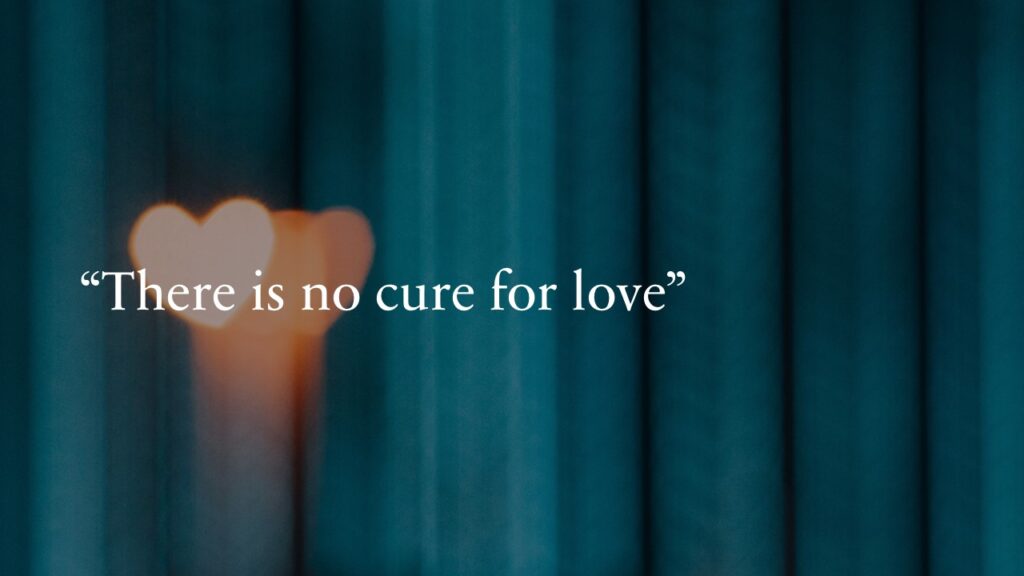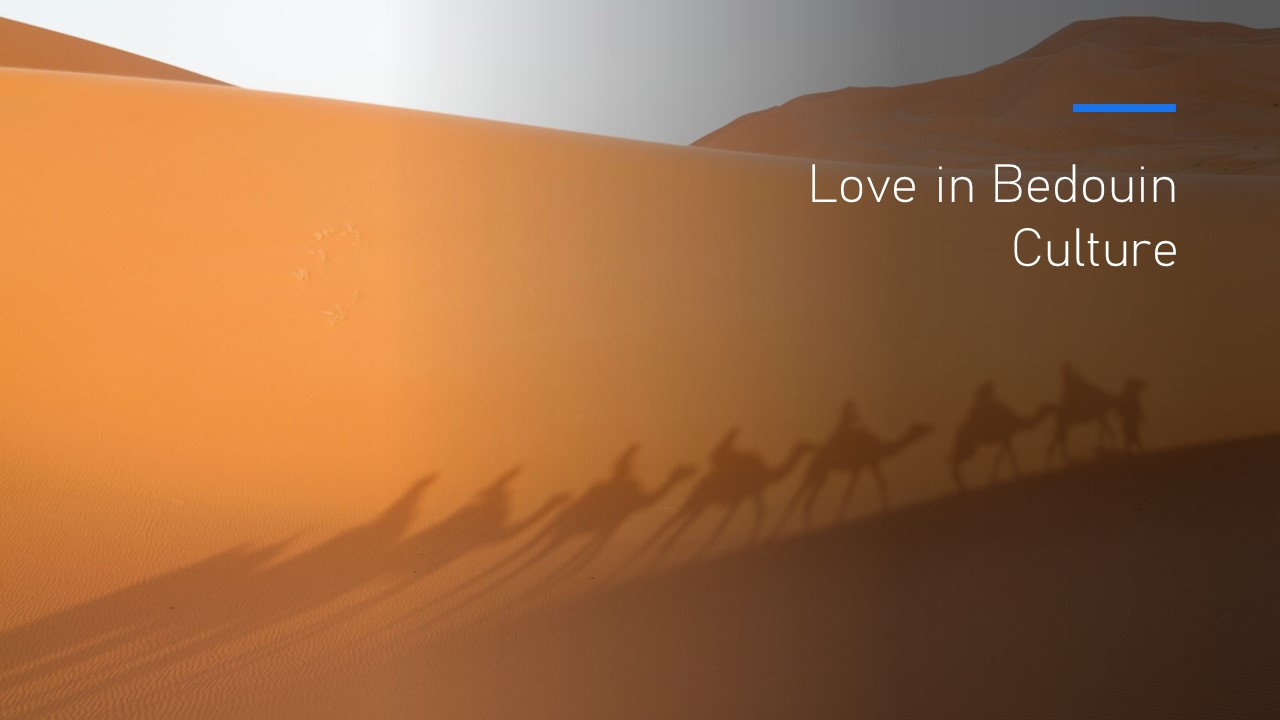The field study of relationships in Bedouin culture, conducted by American anthropologist Dr. Deborah Wickering (1997), uncovered a diversity of love conceptions in those cultural groups. Bedouins distinguish two kinds of love: ilhub and ralya.
What Kind of Love Does Ilhub Mean in Bedouin Culture?
The word “ilhub” is the most common noun for “love” and the most common verb for “to love.” People understand it as a sickness, a death-defying condition, carrying passion, desire, and pursuit. This kind of love involves longing, passion, and a desire for something (or someone) that a person does not possess. This kind of love is a fierce illness that inhabits the body.
“Emotions can control a person. In love, you can’t think of anything else; usual rules are broken. ”
(Wickering, 1997, p. 79)
Unrequited love brings a loss of appetite. When the pursuit of desire is thwarted, the person feels depression and lethargy. As the lyrics of a popular Bedouin song say,

What Kind of Bedouin Love Does Ralya Mean?
The word ralya means “dear,” “precious,” and “valuable.” It stands for an emotion that a person feels toward family members, friends, and a marriage partner. People experience this kind of love as a feeling of security and support, as a feeling of being safe, protected, held, and cherished. The love feelings of “ralya” relate to a social network of obligations, duties, and rights in kin and friendship relations.
“Obedience to one’s parents was obligatory.”
(Wickering, 1997, p. 80)
Ralya is love for those who are currently present and with whom a person has familiarity and social contact. The kinship bonds of ralya sustain human life. These love bonds provide the necessities of survival: shelter, protection, food, and clothing.
The Bedouin ralya is love in the context of various rituals and routines of everyday life. It penetrates talks and meals. It permeates the relationships with people with whom a person shares a routine familiarity and intimacy. Other people in the ralya relationships have the close bonds with each other (Wickering, 1997, pp. 78–79).
The passion of ilhub pulls a lover toward the beloved, while fear precipitates aversion. People use the word xayif representing fear, an avoidance response, and heart pounding, to denote the strength of feelings in ralya.
The Relationship between Ralya and Ilhub Is a Paradox of Love in Bedouin Culture
According to Wickering’s interpretation (1997, pp. 80–81), the ilhub
“takes an individual out of the familiar, secure, and known toward chaos, risk, danger, and possibly death. It is a passion for otherness.”
In ilhub,
“the other is different, distant, outside of routine and obligation. In patrilateral cross-cousin marriages, union is made of sameness.”
The Bedouin story of tragic love is about a desire to subvert an obligation. This love is a flight away from rules.
The desire of a person toward unity with another—a beloved—can destroy this person’s unity with those who are the same—family members. On the one hand, love supports life, while on the other, it unhinges it.
Field observations by Wickering have revealed that emotions for Bedouins are physical and corporeal. The heart contains both ralya and ilhub, along with fear, another emotion of concern to the Bedouin people. The struggle between these two forces brings both excitement and tragedy (Wickering, 1997, p. 80).
Cultural Connotations of Love among Bedouins
Ralya and ilhub are the types of love that are related to each other, yet neither one is dominant. The Bedouin culture of love is closely related to their traditional nomadic life, which brings people together and takes them apart.
Because of this, men and women often feel a tension between presence and absence, which is embodied in the tension between ralya and ilhub.
On the one hand, the bonds of ralya keep kin together. Those people, who are in the relations of ralya, are present in small kin groups. They are visible and look familiar. They are close, both physically in the household and in daily activities. They are emotionally and intimately acquainted.
On the other hand, “ilhub” reaches out with desire in the distance, breaks order, and subverts kin bonds to develop outside attachments. The emotion of ilhub stems from distance and absence. It fosters a desire and longing for someone who is not involved in “ralya” relationships. A man and a woman may feel ilhub; however, they are veiled from each other. They are expected to keep a public distance from each other.
